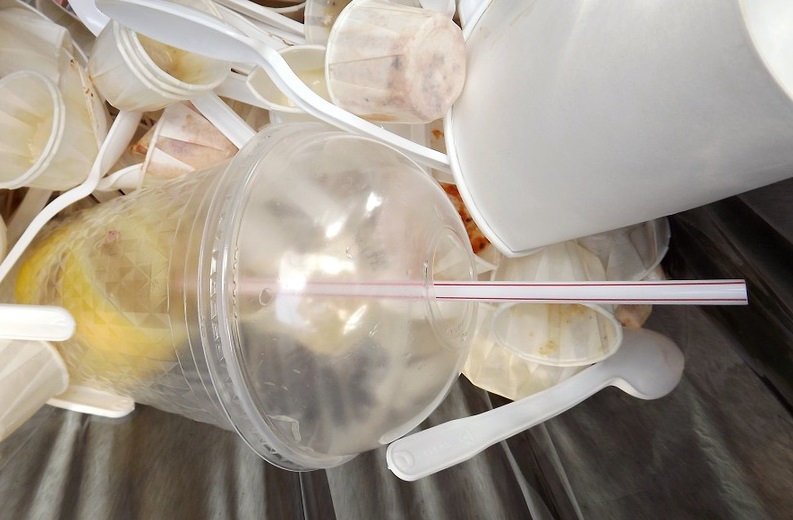
Garrett Park Councilman: Straw Ban Is ‘Simple Place to Start’
Just under 1,000 people, only one full service restaurant, and now, a straw ban. Although Garrett Park is a small town between Kensington and North Bethesda, they are leading the state in banning single-use plastic straws.
Town Councilman Dan Simons believes doing without plastic straws is a step in the right direction, and he hopes that other towns and cities follow in their footsteps.
“It’s a very doable, simple place to start,” he said, “While we are a little town, I think we will have a big impact.”
This ordinance, which takes effect on March 3, requires straws in Garrett Park to be made of biodegradable material. Violators will face a $100 fine.
But Why Drinking Straws?
According to National Geographic, about 500 million plastic straws are used every day, but only make up 0.025 percent of the 8 million tons of plastic that enters oceans every year. That amount of plastic pollution kills over 1 million marine animals each year. Although straws may not make up a large portion of plastic pollution, the effects of straws on animals (as seen in this graphic video of a sea turtle that went viral) is enough to cause public reaction.
Simons wrote and presented the ordinance, and he believes that eliminating plastic straws can have a major positive impact on the environment.
“We’re proud to do our part to reduce consumer use of single-use plastics to help keep our waterways clear of debris,” he said, “We hope that other towns and cities follow our lead as we work with them to eliminate single-use plastic statewide.”
Why now?
Although Garrett Park may be the first town in Maryland to pass such a ban, plastic straws and other single-use plastic items have been under fire in recent years. Seattle banned plastic straws and utensils in the food industry starting last July 1. California banned the use of plastic straws at dine-in restaurants starting in January.
Washington, D.C., had passed a law banning plastic straws in restaurants and other businesses in 2014, but after a lack of enforcement, the city more recently passed an updated law that gives the District Department of Energy and Environment the authority to enforce the ban on plastic straws. This ban began this year, and businesses have until July 1st before being fined for violating the law.
Alternatives to plastic straws are popping up every day, and there are already dozens of companies producing more sustainable drinking straws. Some of the more popular substitute straws are made of glass, stainless steel, paper, silicone, and plant materials such as bamboo and papaya.
While they may not be as durable or as cheap, their environmental impact is significantly lower than that of single-use plastic straws, which take roughly 200 years to fully decompose.

Engage us on Facebook
Follow us on Twitter
Tweets by @mymcmedia